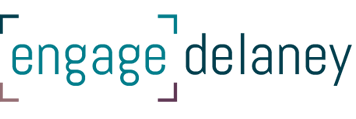City Conversations on Vancouver’s Search for New Planning Director
Have you ever wondered what it takes to be the chief planner in the City of Vancouver? To be the wo/man that reviews and approves development applications in the city that has been growing fast, and is predicted to keep growing, where property prices have reached exorbitant heights disproportionate to Vancouverites’ income levels, and where a single rezoning or even just a plan to densify can bring you winnings equal to scoring on the lottery? It takes a lot.
Based on the views of three guest speakers at today’s City Conversations event at SFU Vancouver, this person needs to be willing to hear the public, have courage to say no to developers, have a meaningful and comprehensive explanation for every uttered “No,” to be able to work well with Council and Planning staff, and be a diplomat and visionary all at once.
Former city councillor Marguerite Ford also added that this person – if not able to walk on water – should at least seem to be able to walk on water; urban affairs journalist Frances Bula thought s/he needs to be a saint and able to achieve world peace; and Peter Ladner had a long list of responsibilities and tasks for this person, as well as a list of different groups of people this person would need to work well with.
The position clearly needs a skilled negotiator, a leader who would not just stamp approvals on anything that comes his/her way, someone who could withstand the pressure from developers, yet plan for growth, and keep design in mind. The expectations are high. At one point, a member of audience felt compelled to challenge the myth of finding the ultimate super planner.
In addition to the consensus that this role will be very difficult to fill (good luck Vancouver!), I believe another theme emerged during the session: how to ensure that the city hears the public opinion – and not just the few loud members of public that attend and yell at open houses. How does city planning seek and incorporate opinion and input of Vancouver’s public in the vision for the city’s future, and how does that vision and future direction get design by the public?
Here, the answers were not as easy to come up with. And if you know us, you can probably guess what we would say. We think this nails it on the head. We think the person who believes in the role of public in the planning processes, who understands that issues need to be scoped and stakeholders identified, who believes in early and continuous consultation – the person who can truly incorporate the voice of the public and other stakeholders in the vision and growth of the city – that person will be the right fit for the job!


